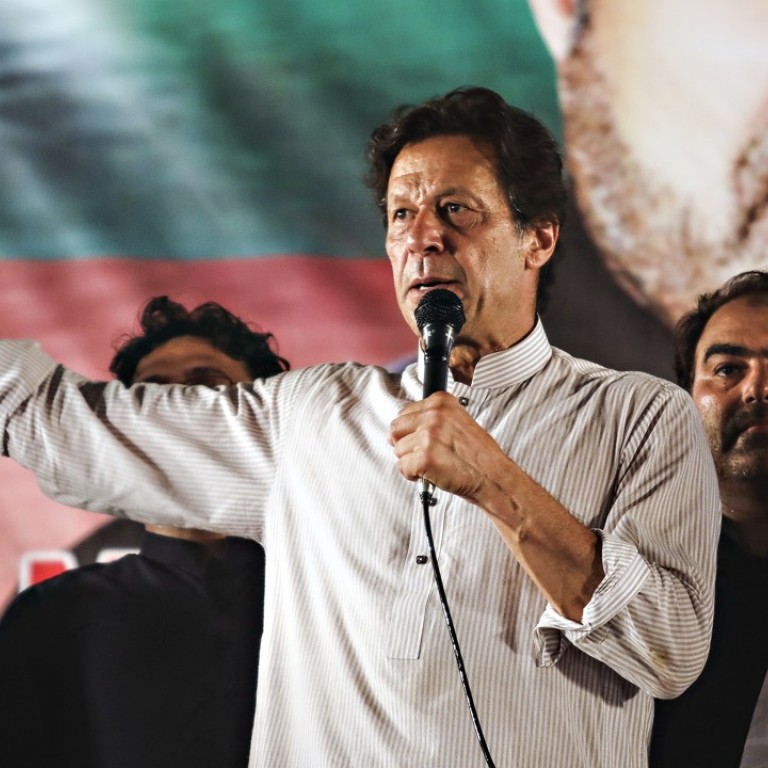
Why Beijing can have some confidence in Imran Khan
Pakistan’s likely new prime minister has respect for China, which means deals associated with the ‘Belt and Road Initiative’ are likely to be honoured
Democratic countries along the route of China’s “Belt and Road Initiative” can be problematic for the progress of the infrastructure scheme. Contracts signed with Beijing may be reviewed should a government lose power in an election, as happened in Malaysia in May. That could also well be the case in Pakistan, where populist politician Imran Khan seems certain to become prime minister after the ruling party was toppled in polls last week. But while individual deals may come under scrutiny, there is no danger of the scheme being derailed or relations with China being shaken; the benefits and ties are far too important for politics to get in the way.
Khan is well aware of circumstances, which is why as an opposition leader he cultivated ties with Beijing. He met the Chinese leadership in 2011 and has held talks with visiting dignitaries. His party is a strong supporter of the US$62 billion China-Pakistan Economic Corridor, an infrastructure scheme that is integral to the belt and road. The politician has good reason to reach out to China; he sees it as a role model for fighting his country’s rampant poverty and corruption and getting the economy on track.
In a national address last week, he mentioned China seven times, while his party put out a Twitter message in Chinese pledging better foreign relations. But the Western media has tried to portray his views of his country’s giant neighbour differently, focusing on a protest against former prime minister Nawaz Sharif in Islamabad in 2014 that led to the aborting of a visit by President Xi Jinping and a delay in the signing of the corridor deal. It has also tried to depict the belt and road as a debt trap for participating nations. The multibillion-dollar loans from China and the shaky state of the Pakistani economy, riven by a balance-of-payments crisis, soaring debts and plunging currency, seemingly back such an assertion.
But it is not in the interests of Khan or China to let Pakistan fall into an even bigger economic hole. Should the leader be able to form a coalition government, his priority as prime minister will be to gain low-interest foreign loans and attract investors. That will not be so straightforward given Pakistan’s poor international image, centred on being perceived as a haven for extremist groups. The United States, once a major aid donor, has cut military support and moved closer to Pakistan’s rival, India, as a check on China.
Claims by rivals that Khan fraudulently won the election with the military’s help have to be overcome. But his charisma, understanding of the West and support among Pakistanis, particularly young voters, stand him in good stead. So, too, does his respect for China, which is good for both nations, Pakistan’s people and Chinese ambitions and investors alike.

